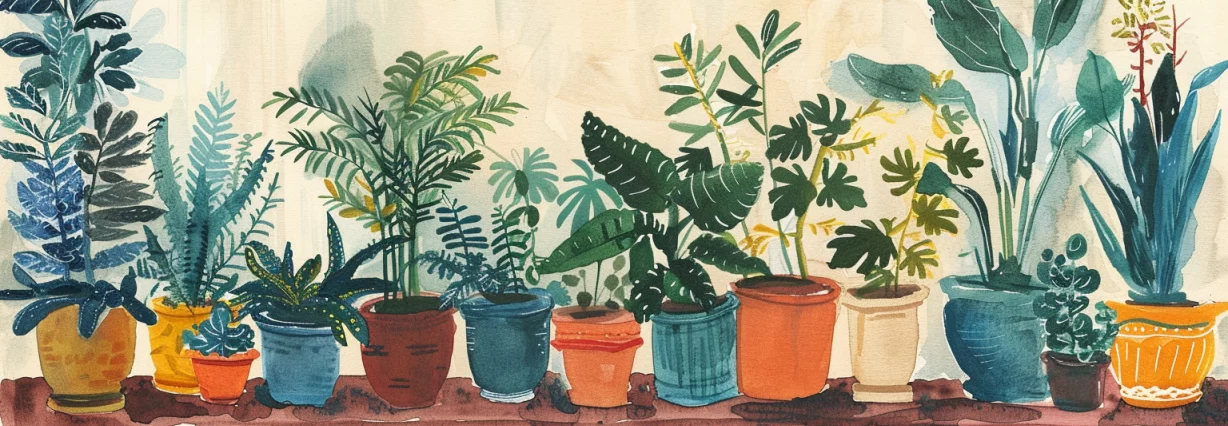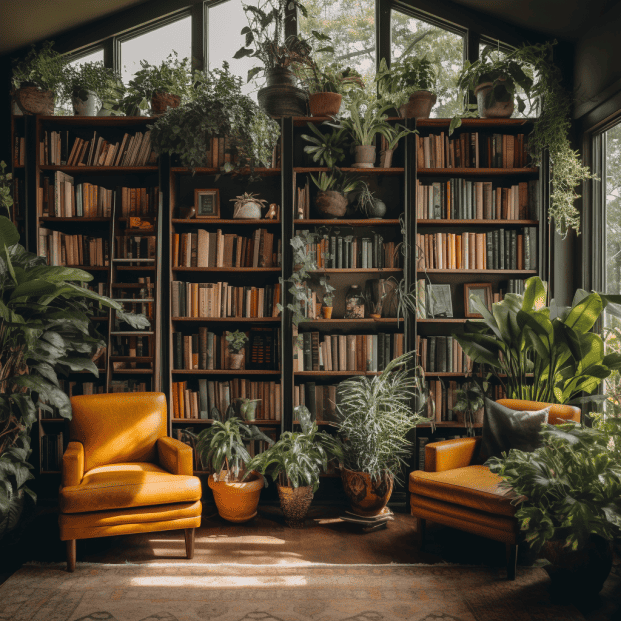Houseplants have been a popular addition to home decor for decades. Not only do they add a touch of greenery to a living space, but they also offer numerous benefits to both physical and mental health. Research shows that indoor plants can help reduce stress levels, improve air quality, and increase productivity, among other advantages.
One of the most significant benefits of houseplants is their ability to purify the air. According to a study by NASA, plants can remove up to 87% of toxins from the air in just 24 hours. This is especially important in urban areas where air pollution is a significant concern. Indoor plants can help reduce harmful chemicals such as benzene, formaldehyde, and trichloroethylene, commonly found in household items like cleaning products and furniture.
In addition to their air-purifying properties, indoor plants also positively impact mental health. Studies have shown that simply being around plants can help reduce stress levels, lower blood pressure, and improve overall well-being. Caring for plants can also provide a sense of purpose and boost self-esteem. With so many benefits, it’s no wonder that houseplants have become a staple in many homes.
The Importance of Houseplants
Houseplants are more than just a decorative element in your living space. They have numerous benefits that can improve your overall well-being. Having greenery around you can positively impact your physical and mental health and the environment.
One of the most significant advantages of houseplants is their ability to purify the air. According to a study by NASA, certain plants can remove up to 87% of air toxins in just 24 hours. These toxins include formaldehyde, benzene, and trichloroethylene, commonly found in household items such as cleaning products, paints, and carpets. Having houseplants can improve the air quality in your home and reduce the risk of respiratory problems.
In addition to improving air quality, houseplants can boost your mood and well-being. Studies have shown that being around greenery can reduce stress levels and improve concentration and productivity. Plants can also create a calming atmosphere in your home, which can help with relaxation and sleep.
Houseplants can also have a positive impact on the environment. Having plants in your home can reduce your carbon footprint and contribute to a healthier planet. Plants absorb carbon dioxide and release oxygen, which can offset the harmful effects of pollution.
In summary, houseplants are an essential element of any living space. They have numerous benefits that can improve your physical and mental health and the environment. Incorporating greenery into your home can create a more comfortable and healthier living space.
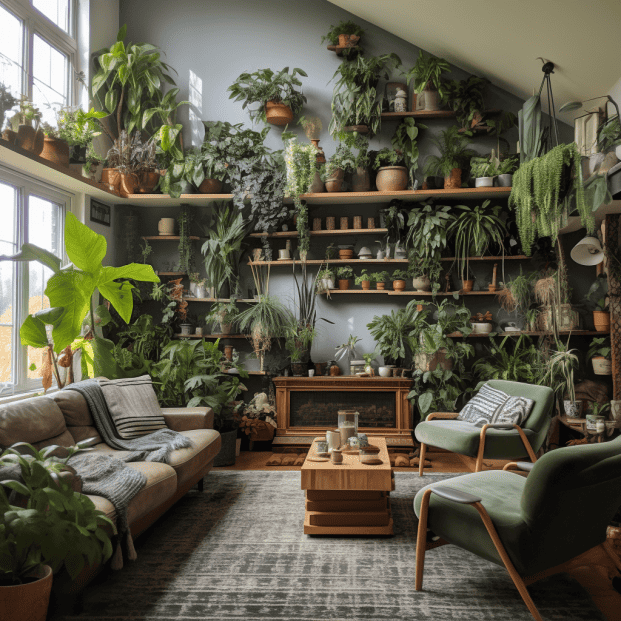
The Science Behind Houseplants
Houseplants not only add a touch of beauty to your living space, but they also offer many health benefits. They can help improve indoor air quality by removing harmful chemicals and pollutants from the air. This is because plants absorb carbon dioxide and release oxygen through photosynthesis, converting light energy into chemical energy and using it to produce organic compounds.
NASA conducted a study on the benefits of houseplants and found that they can remove up to 87 percent of air toxins in just 24 hours. The study also revealed that certain plants are more effective at removing specific toxins than others. For example, the peace lily is excellent at removing formaldehyde, while the spider plant removes benzene and carbon monoxide.
Indoor air quality is vital in maintaining good health, and houseplants can play a significant role in achieving cleaner air. They can remove volatile organic compounds (VOCs) from the air, which are harmful chemicals that can cause health problems such as headaches, dizziness, and respiratory issues. Houseplants can also help to reduce stress levels, boost mood, and improve concentration and productivity.
In addition to improving indoor air quality, houseplants can enhance your living space’s aesthetic value. They come in various shapes and sizes, and there are many different types of plants to choose from. Whether you prefer a small succulent or a large leafy plant, there is a houseplant that will suit your style and needs.
Overall, the science behind houseplants is precise: they provide numerous benefits for physical and mental health. Incorporating houseplants into your living space is an easy and effective way to improve indoor air quality and enhance your home’s overall look and feel.
Health Benefits of Houseplants
Houseplants add visual interest to your living space and provide several health benefits. Here are some of how houseplants can improve your health:
Improved Air Quality
Indoor plants can help purify the air by removing toxins and pollutants. According to a study by NASA, certain plants, such as spider plants, snake plants, and peace lilies, can remove harmful substances like benzene, formaldehyde, and trichloroethylene from the air. This can lead to improved breathing and a reduction in allergies.
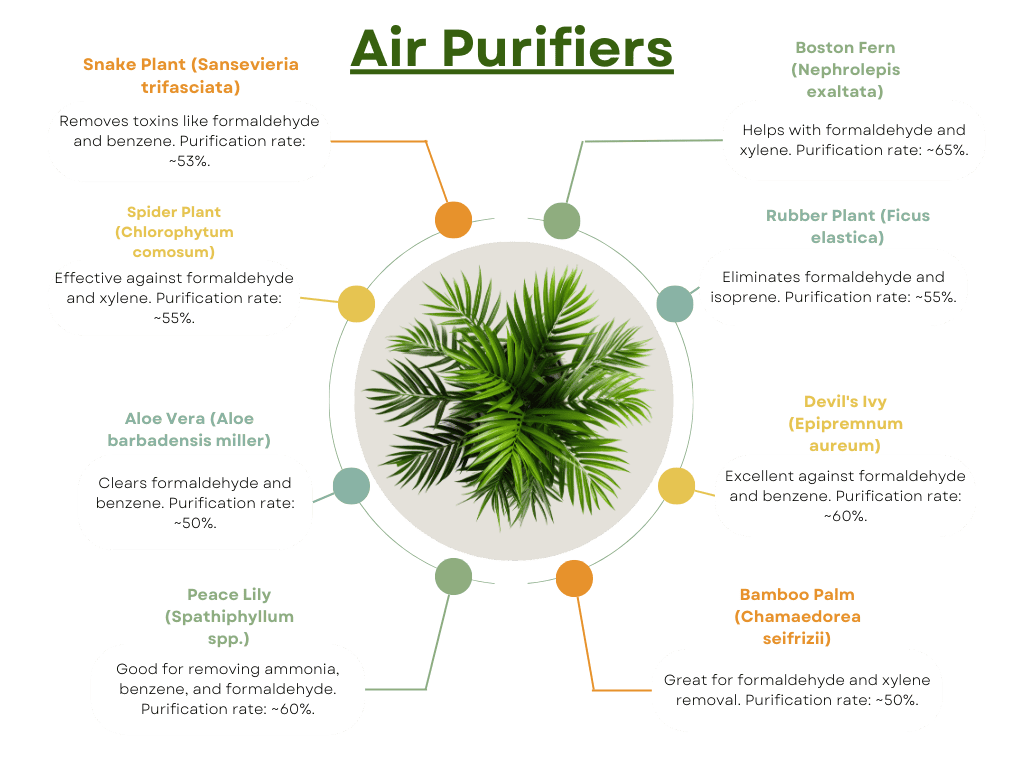
Reduced Stress and Anxiety
Studies have shown that having plants in your living space can help reduce stress levels and anxiety. One study found that looking at a plant can lower blood pressure and heart rate. Plants can also improve concentration and focus, making them a great addition to workspaces and study areas.
Improved Mental Health
Houseplants can also have a positive impact on mental health. They can help reduce symptoms of depression and anxiety and improve overall mood. Caring for plants can also provide a sense of accomplishment and boost self-esteem.
Improved Healing and Recovery
Research has shown that hospital patients recover faster when plants are in their rooms. Plants can help reduce pain medication usage and improve healing time. They can also improve overall well-being and create a more favorable environment for recovery.
Improved Humidity
Houseplants can also help regulate humidity levels in your home. This can be especially beneficial during the winter months when the air is dry. Plants release moisture into the atmosphere through transpiration, which can help prevent dry skin and respiratory problems.
Adding houseplants to your living space can provide numerous health benefits and improve your overall well-being.
Specific Houseplants and Their Benefits
Houseplants are an excellent way to add color, texture, and life to any living space. In addition to their aesthetic appeal, many houseplants offer a variety of health benefits. Here are some popular houseplants and the gifts they provide:
Spider Plant
Spider plants (Chlorophytum comosum) are one of the most common houseplants. They are easy to care for and can thrive in various lighting conditions. Spider plants are known for removing harmful toxins from the air, including formaldehyde and xylene. They are also great for humidifying the air, which can help to reduce respiratory problems.

English Ivy
English ivy (Hedera helix) is a popular houseplant known for its ability to purify the air. It is particularly effective at removing mold from the air, which can be a significant problem for people with allergies or asthma. English ivy is also a great way to add a touch of green to your living space.
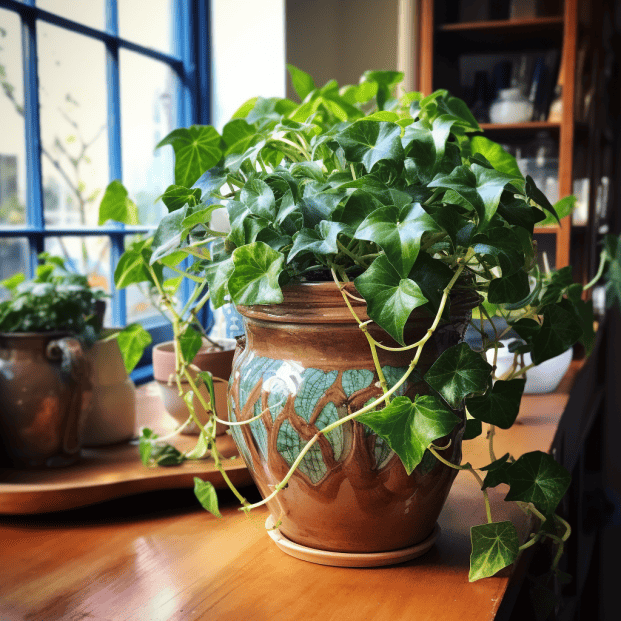
Pothos
Pothos (Epipremnum aureum) is a trailing plant that is easy to care for and can thrive in various lighting conditions. It is known for its ability to remove harmful toxins from the air, including formaldehyde and benzene. Pothos is also great for adding a touch of green to any room.

Snake Plant
Snake plants (Sansevieria) are known for their ability to purify the air. They effectively remove formaldehyde, benzene, and trichloroethylene from the perspective. Snake plants are also great for adding a touch of green to any room.

Bamboo Palm
Bamboo palms are great for adding a tropical touch to your living space. They also effectively remove harmful toxins from the air, including formaldehyde and benzene. Bamboo palms are particularly effective at humidifying the air, which can help to reduce respiratory problems.
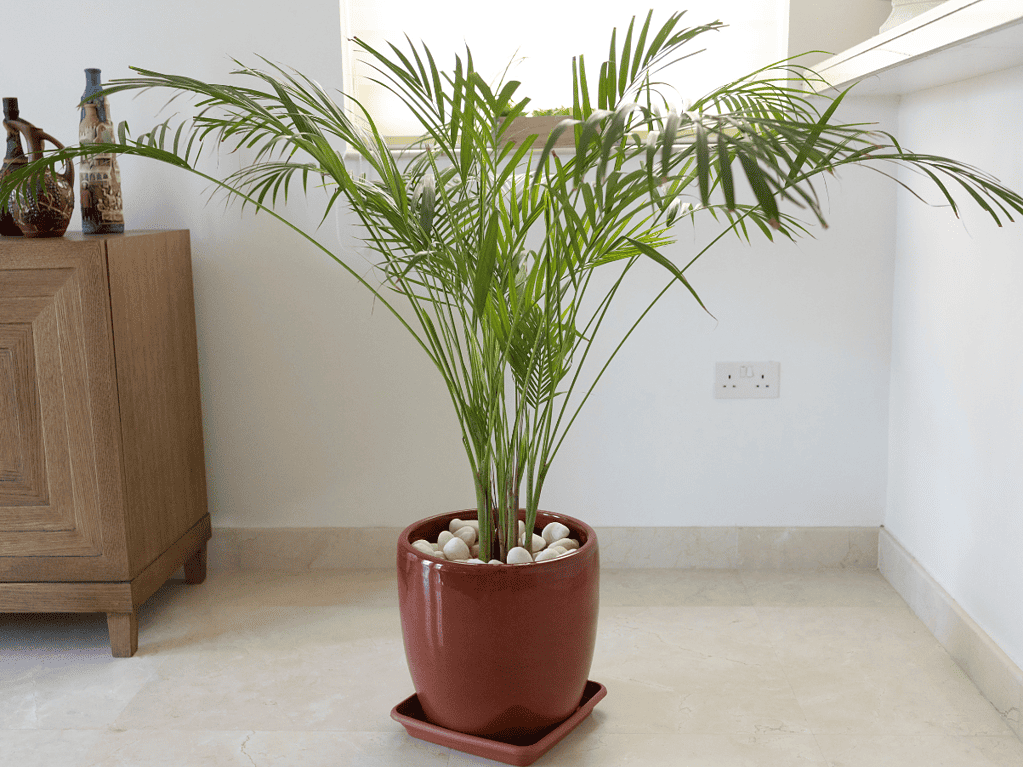
Aloe Vera
Aloe vera is a popular houseplant known for its ability to soothe burns and other skin irritations. It also effectively removes harmful toxins from the air, including formaldehyde and benzene. Aloe vera is easy to care for and can thrive in various lighting conditions.
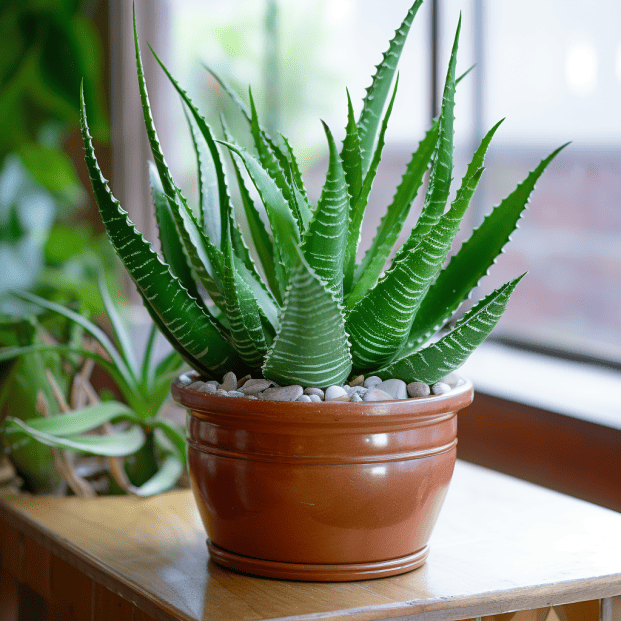
Philodendron
Philodendrons are popular houseplants known for removing harmful toxins from the air, including formaldehyde and benzene. They are also great for adding a touch of green to any room.

Boston Fern
Boston ferns are great for adding a touch of green to your living space. They also effectively remove harmful toxins from the air, including formaldehyde and benzene. Boston ferns are particularly effective at humidifying the air, which can help to reduce respiratory problems.

Monstera Deliciosa
Monstera deliciosa is a popular houseplant known for its large, glossy leaves. It also effectively removes harmful toxins from the air, including formaldehyde and benzene. Monstera deliciosa is easy to care for and can thrive in various lighting conditions.

Chinese Evergreen
Chinese evergreens are great for adding a touch of green to your living space. They also effectively remove harmful toxins from the air, including formaldehyde and benzene. Chinese evergreens are particularly effective at humidifying the air, which can help to reduce respiratory problems.
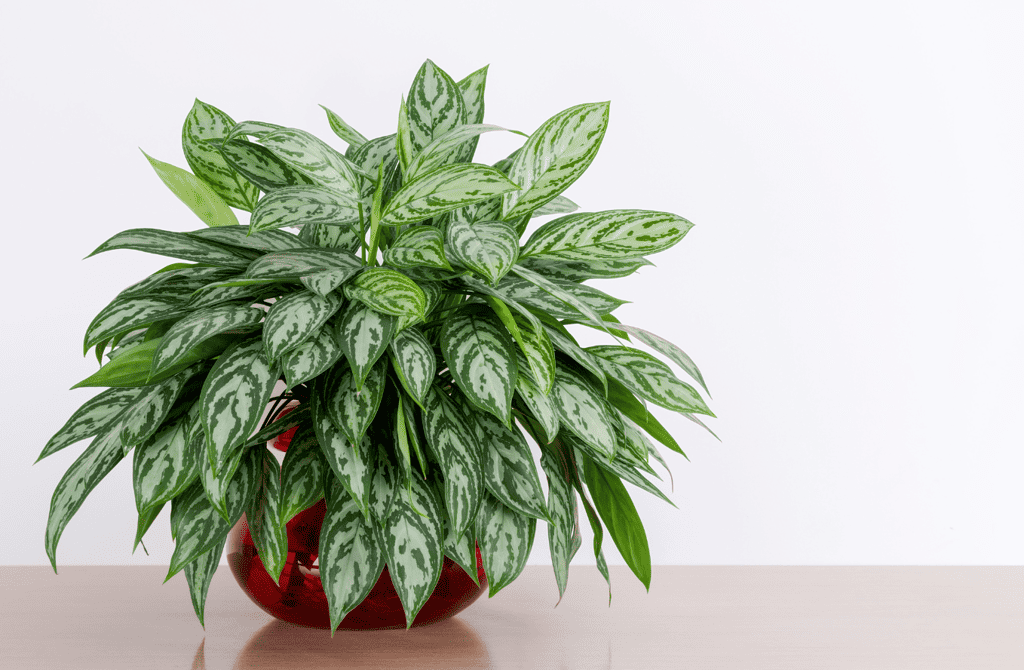
Dragon Tree
Dragon trees are great for adding a touch of color to your living space. They also effectively remove harmful toxins from the air, including formaldehyde and benzene. Dragon trees are particularly effective at humidifying the air, which can help to reduce respiratory problems.

Rubber Tree
Rubber trees are great for adding a touch of green to your living space. They also effectively remove harmful toxins from the air, including formaldehyde and benzene. Rubber trees are particularly effective at humidifying the air, which can help to reduce respiratory problems.
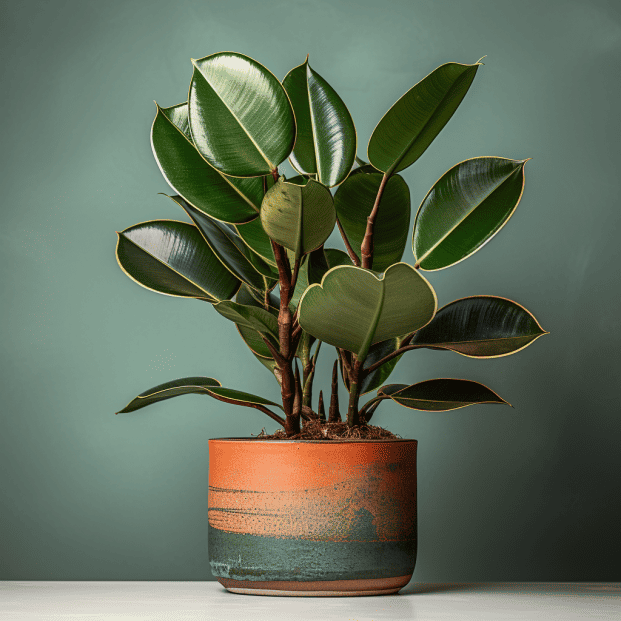
Dieffenbachia
Dieffenbachia is a popular houseplant known for its large, colorful leaves. It also effectively removes harmful toxins from the air, including formaldehyde and benzene. Dieffenbachia is easy to care for and can thrive in various lighting conditions.

Jade
Jade is a popular houseplant that is known for its succulent leaves. It also effectively removes harmful toxins from the air, including formaldehyde and benzene. Jade is easy to care for and can thrive in various lighting conditions.

Houseplants and Air Quality
Houseplants are not just for decoration. They can also improve the air quality of your living space. According to a study by NASA, certain houseplants can remove toxins such as formaldehyde, benzene, and trichloroethylene from the air.
Formaldehyde is a common indoor pollutant found in furniture, carpets, and building materials. Benzene is often found in paints, solvents, and gasoline. Trichloroethylene is a chemical used in dry cleaning and metal degreasing. These toxins can cause health problems such as headaches, dizziness, and respiratory issues.
Houseplants can also help remove other pollutants such as acetone, mold, dust, and pollen. Acetone is a chemical found in nail polish remover and can cause eye and respiratory irritation. Mold can cause allergies and respiratory problems. Dust and pollen can cause allergies and asthma.
Some of the best houseplants for improving air quality include:
- Spider plant
- Peace lily
- Boston fern
- Snake plant
- Aloe vera
- English ivy
- Rubber plant
These plants are easy to care for and can thrive in low-light conditions. They can also add a touch of green to your living space and make it feel more inviting.
In conclusion, houseplants can be a natural and effective way to improve the air quality of your living space. By choosing the right plants and properly caring for them, you can enjoy the benefits of cleaner and healthier air.
Houseplants in Different Spaces
Houseplants can be incorporated into any living space, from homes to offices to hospitals. Incorporating plants into these spaces can have numerous benefits, including reducing stress, boosting mood, and improving air quality. Here are some tips for incorporating houseplants into different spaces:
Homes
Houseplants can add a touch of nature and color to any room in homes. They can also help purify the air and create a more relaxing environment. Some popular houseplants for homes include:
- Snake plant: This plant is known for its ability to purify the air and is low maintenance, making it perfect for busy homeowners.
- Spider plant: These plants are great for hanging baskets and can help remove toxins from the air.
- Pothos: This plant is easy to care for and can thrive in low-light conditions.
Offices
Incorporating houseplants into office spaces can help reduce stress levels and boost productivity. Plants can also help improve air quality, especially in buildings with poor ventilation. Some popular office plants include:
- Peace Lily: This plant is known for its ability to improve air quality and can thrive in low-light conditions.
- English Ivy: This plant is great for removing toxins from the air and can be grown in a hanging basket or on a trellis.
- Rubber plant: This plant is easy to care for and can add color to any office space.
Hospitals
Houseplants can help create a more welcoming and calming environment for patients and visitors in hospitals. Plants can also help improve air quality and reduce stress levels. Some popular hospital plants include:
- Aloe Vera: This plant is known for its ability to improve air quality and can also be used for its healing properties.
- Boston Fern: This plant is great for removing toxins from the air and can thrive in humid environments.
- Golden Pothos: This plant is easy to care for and can help purify the air.
Incorporating houseplants into different living spaces can benefit physical and mental health. With so many different plant types, it’s easy to find the perfect plant for any space.
Aesthetic Benefits of Houseplants
Houseplants are a great way to add a touch of beauty and style to your living space. They come in various colors, textures, and sizes, making finding the perfect plant to complement your decor easy. Whether you prefer flowers, succulents, or leafy greens, there is a houseplant for you.
In addition to being visually appealing, houseplants can also have a positive impact on your mood. Studies have shown that being around plants can increase feelings of happiness and reduce stress levels. This is because plants help to create a calming and relaxing environment, which can be especially beneficial in high-stress areas like the workplace.

Furthermore, houseplants can help to improve the overall aesthetic of your home. By adding a splash of greenery to your living space, you can create a more inviting and welcoming atmosphere. Plants can also be used to fill empty spaces or to draw attention to specific areas of the room.
When choosing houseplants for aesthetic purposes, it’s important to consider factors like lighting, humidity, and temperature. Some plants require more light than others, while others thrive in low-light conditions. Similarly, some plants prefer high humidity levels, while others are better suited to drier environments.
Overall, the aesthetic benefits of houseplants are numerous. They can add color, texture, and life to your living space while also providing a range of other benefits, like reducing stress levels and improving air quality. So why not consider adding a few plants to your home today?
Houseplants and Horticulture
Houseplants are not just decorative additions to a living space, but they also offer a range of benefits. Horticulture, the practice of growing plants for ornament, food, medicine, and more, has been shown to have positive effects on mental and physical health. In fact, research conducted by the University of Exeter found that people who engage in gardening activities have better mental health and well-being.
Horticultural therapy is a form of therapy that uses gardening and other horticultural activities to improve mental and physical health. It has been found to be effective in reducing symptoms of depression, anxiety, and stress. Horticultural therapy can also help individuals improve their cognitive function, social skills, and self-esteem.

Houseplants can also be a part of horticultural therapy. Caring for plants can provide a sense of accomplishment and purpose. It can also be a relaxing and meditative activity. Houseplants can improve indoor air quality by removing pollutants and increasing oxygen levels. They can also increase humidity levels, which can be beneficial for respiratory health.
For those with a green thumb, horticulture can also be a fun and rewarding hobby. It can provide a sense of connection to nature and the environment. Gardening can also be a form of exercise, as it involves physical activity such as digging, planting, and weeding. Additionally, growing your own fruits, vegetables, and herbs can provide fresh and nutritious food options.
Overall, incorporating houseplants and horticulture into a living space can provide a range of benefits for mental and physical health. Whether it is through horticultural therapy, gardening as a hobby, or simply having a few houseplants around, there are many ways to green your living space and improve your well-being.
Potential Risks and Considerations
While houseplants offer numerous benefits, there are also some potential risks and considerations to keep in mind.
Toxicity
Some houseplants can be toxic to pets, especially cats and dogs. For example, lilies, azaleas, and sago palms can cause serious health issues if ingested by pets. It’s important to research the toxicity of any houseplants before bringing them into a home with pets. The American Society for the Prevention of Cruelty to Animals (ASPCA) offers a comprehensive list of toxic and non-toxic plants to pets. https://www.aspca.org/pet-care/animal-poison-control/toxic-and-non-toxic-plants?

Allergies
While houseplants can help improve air quality, they can also trigger allergies in some people. People with allergies to pollen or mold may experience symptoms such as sneezing, itchy eyes, and congestion when exposed to certain types of houseplants. It’s important to be aware of any allergies before bringing houseplants into a living space.
Surgery and Illness
People who have recently undergone surgery or have a weakened immune system may want to avoid certain types of houseplants. Some houseplants can harbor bacteria or fungi that can be harmful to people with compromised immune systems. It’s important to consult with a healthcare provider before bringing houseplants into a living space if there are concerns about infection risk.
Dementia
While houseplants can have a positive impact on mental health, they may not be suitable for people with dementia. People with dementia may become confused or disoriented by the presence of houseplants, especially if they are prone to hallucinations. It’s important to consider the individual needs of people with dementia before bringing houseplants into a living space.
Creativity
While houseplants can add a touch of creativity to a living space, it’s important to consider the maintenance required. Some houseplants require more attention and care than others and may not be suitable for people with busy schedules. It’s important to research the care requirements of any houseplants before bringing them into a living space.

Frequently Asked Questions
What are some of the best indoor plants for improving air quality?
According to a Healthline article, some of the best indoor plants for improving air quality include spider plants, peace lily, snake plants, bamboo palms, and aloe vera. These plants are known for their ability to remove toxins such as benzene, formaldehyde, and trichloroethylene from the air.
What are the psychological benefits of having plants in your living space?
Having plants in your living space can have a positive effect on your mental health. As stated in a Real Homes article, plants can help reduce stress, anxiety, and depression. They can also improve mood and increase productivity.
How many plants are needed to effectively purify the air in a room?
The number of plants needed to effectively purify the air in a room depends on the size of the room and the type of plants being used. As mentioned in a SelectHealth.org article, a general rule of thumb is to have one plant per 100 square feet of space. However, some plants are more effective at purifying the air than others, so it’s important to do research on which plants are best suited for your specific needs.
What are some of the benefits of having plants in your bedroom?
Having plants in your bedroom can improve air quality, reduce stress, and promote relaxation. As noted in a Prevention article, some plants, such as lavender and jasmine, can even help improve sleep quality.
How do plants benefit the environment?
Plants benefit the environment in numerous ways. They absorb carbon dioxide and release oxygen, which helps to reduce greenhouse gas emissions and improve air quality. Plants also help to prevent soil erosion, provide habitats for wildlife, and improve water quality.
What are some of the best indoor plants for beginners?
If you’re new to indoor gardening, some of the best plants to start with include pothos, spider plants, snake plant, and peace lily. These plants are easy to care for and can thrive in a variety of lighting conditions. As noted in a Healthline article, they are also known for their air-purifying properties.

